“I took a leap of faith attending SVC, and it turned out to be one of the most transformative decisions of my life.”
Isaiah C’24
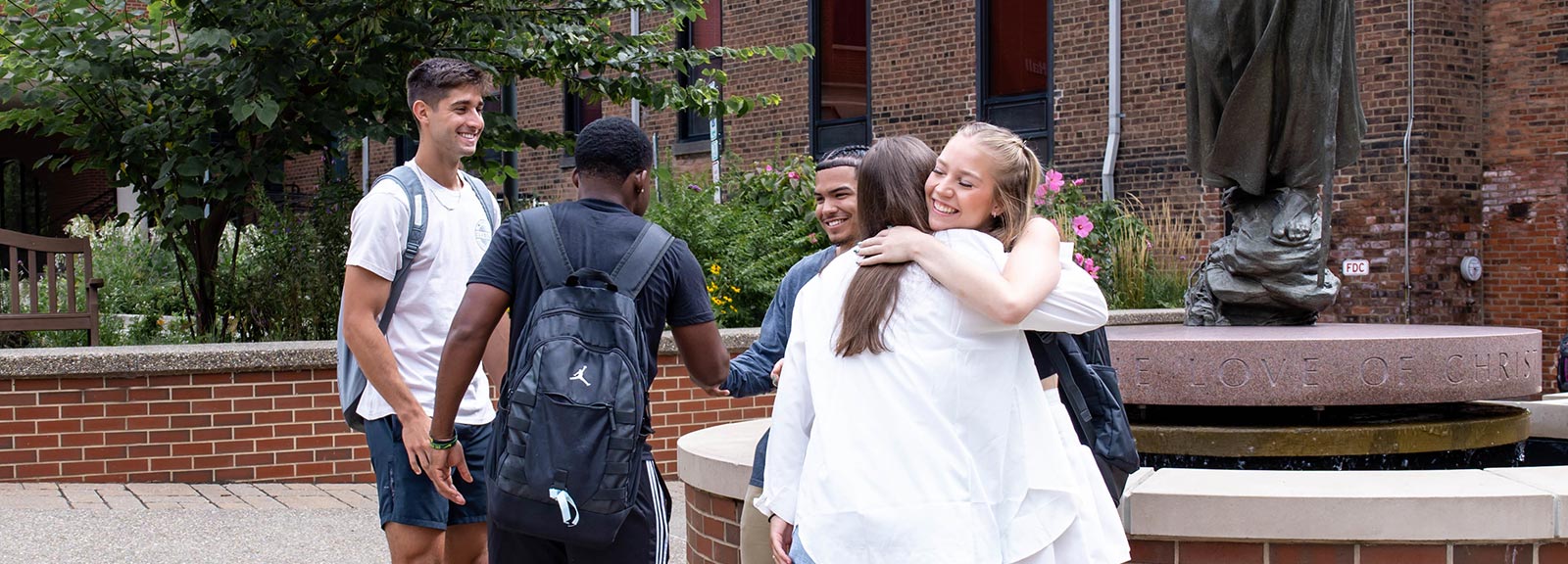
Saint Vincent College is a Catholic liberal arts college rooted in the Benedictine tradition committed to pursuing excellence in academics and preparing you for a life of meaning— professionally and personally— for a lifetime.
Community is at the core of Saint Vincent. We invite you to integrate yourself in our classrooms, clubs, and campus ministry. Uncover your calling and pave a path to fulfillment where you will make a positive impact on others. Our Benedictine tradition reminds us that personal success finds meaning only when we come together to build a stronger community.
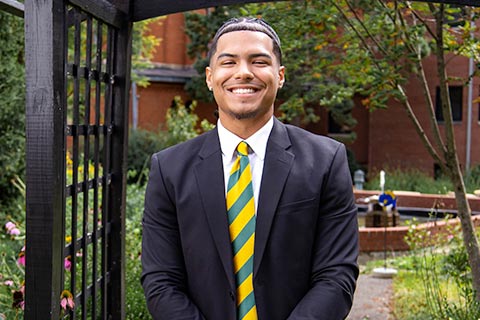
“I took a leap of faith attending SVC, and it turned out to be one of the most transformative decisions of my life.”
Isaiah C’24
SVC is proudly ranked in the top tier of the best liberal arts colleges in the U.S.
Click here to explore all rankings and recognitions!

For the third year in a row Colleges of Distinction has honored Saint Vincent College for the College’s commitment to providing a high-quality undergraduate education that focuses on hands-on learning, strong student-teacher relationships, a vibrant campus life, and successful outcomes.
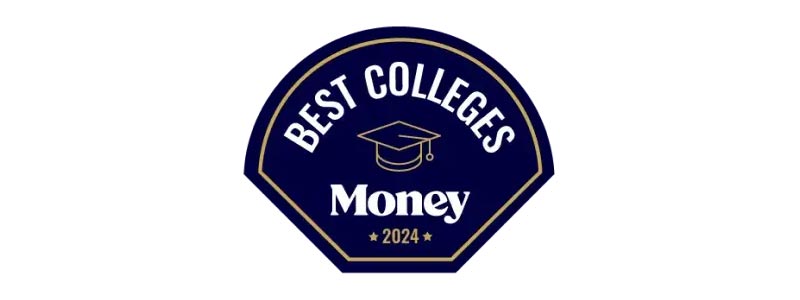
Money for the second year in a row gave Saint Vincent a four-star rating on the publication’s “Best Colleges in America” list. Saint Vincent College is one of only 23 private Pennsylvania colleges to receive either a four- or five-star rating.

Saint Vincent College received notable rankings in the latest U.S. News and World Report's Best College’s Guidebook. It was recognized among Liberal Arts Colleges and also earned a spot for social mobility. Additionally, its undergraduate engineering program was ranked high among non-doctorate programs accredited by the Accreditation Board for Engineering and Technology.
At Saint Vincent, our story is rooted in tradition and guided by a forward-looking spirit. Inspired by our founder Boniface Wimmer’s motto, “forward, always forward,” we honor the past while shaping a transformative future. When you join Saint Vincent, you become part of that ongoing story.
Here you’ll discover we look back to look forward.
Saint Vincent College is a Catholic liberal arts college rooted in the Benedictine tradition. And those roots matter to us.
Learn more about how we established an institute of higher learning based on community, service, and the pursuit of excellence. Discover how we translate 1500 years of tradition into a thriving modern institution, achieving over 175 years of success.
Learn more about our history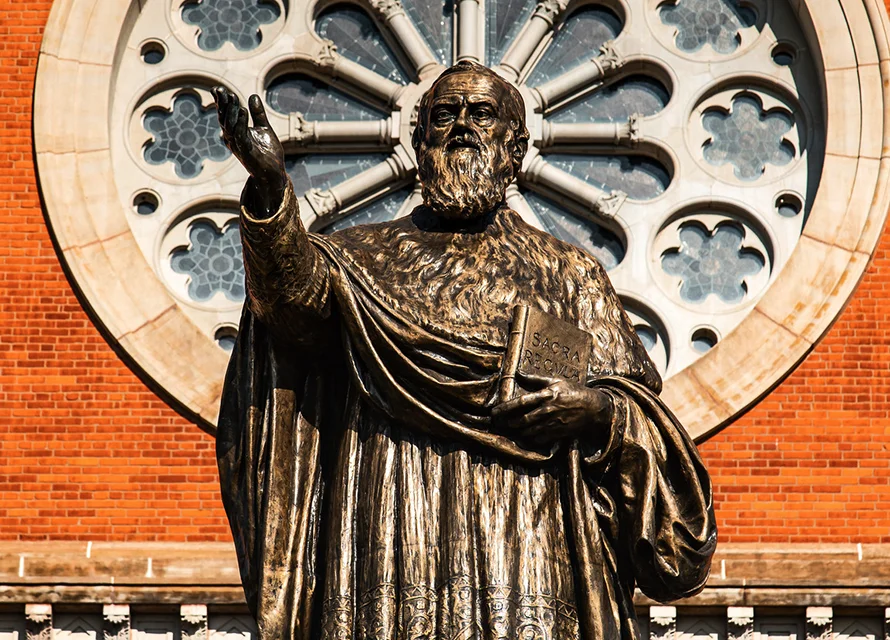
Here you’ll discover a community where you are a part of something bigger.
We believe our community is strengthened by diversity, understanding, and compassion. We embrace St. Benedict’s challenge of extending hospitality to all people.
If you're new to the Catholic Benedictine tradition, we invite you to learn more about us. Our principles of stewardship, humility, and love may resonate with you, no matter your background.
Learn more about our Benedictine tradition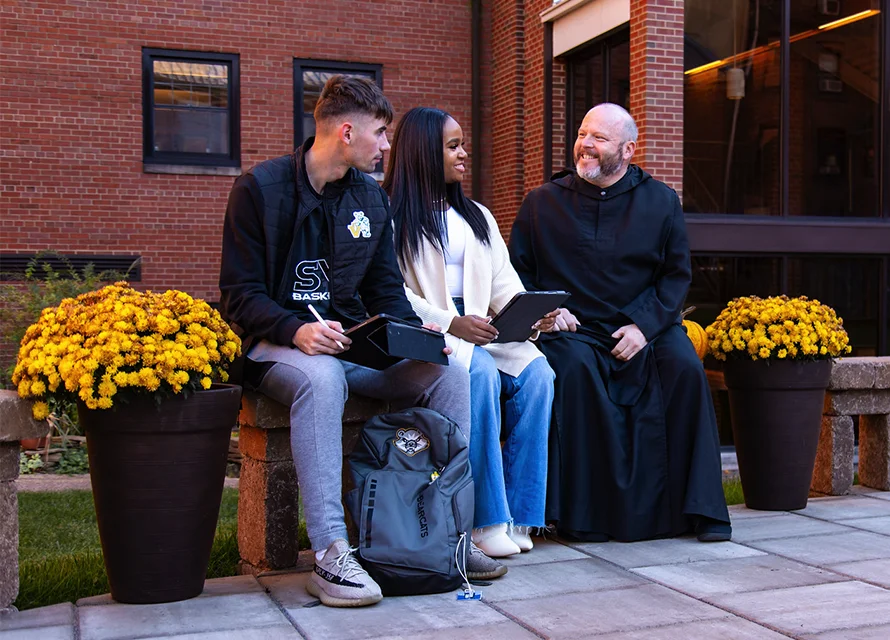
Here you’ll discover the joy of learning as you pursue deeper meaning.
Our philosophy of education, rooted in the early 6th-century monastic tradition, emphasizes the pursuit of truth, goodness, and beauty to serve and uplift our broader community.
With over 60 programs of study, Saint Vincent is educating the next generation of scientists, cybersecurity experts, business professionals, artists, educators, psychologists, engineers, and more. Through our Core Curriculum, students explore diverse disciplines, link subjects, and prepare for compassionate action.
Explore the SVC Core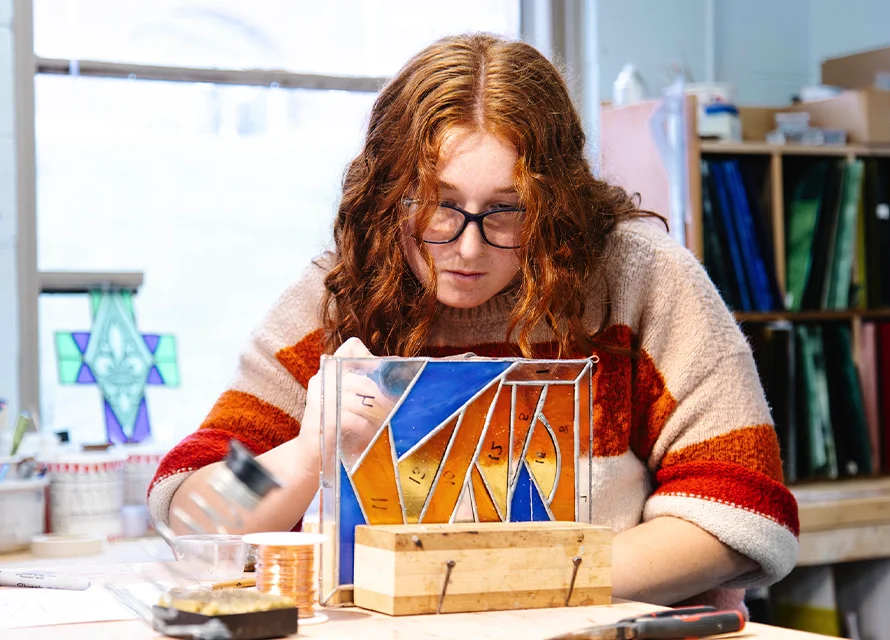
Here you’ll think deeply and aim higher to redefine personal and professional success.
Our expert professors make time to continue relevant research and stay active in their field while remaining intentional about building personal relationships in small classroom settings where students find support and encouragement to be the best versions of themselves.
The Honors Community at Saint Vincent College is an intellectual hub where high-achieving students engage in academic research, cultural excursions, and service-based learning.
Explore our academic program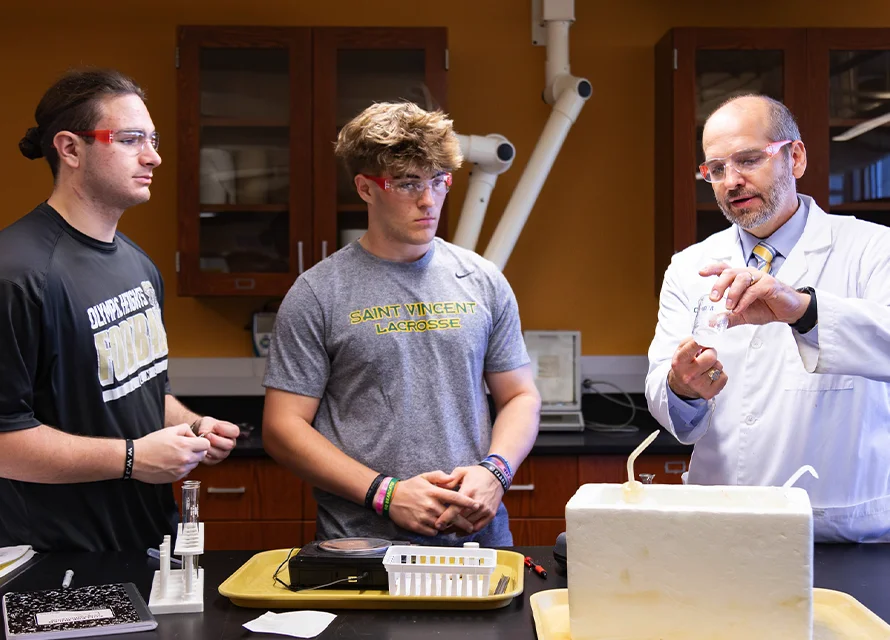
Here you will aspire to more as you excel in your field and live with greater purpose.
At Saint Vincent College, we understand that everyone craves connection and purpose. That’s why we offer experiential learning, service opportunities, and study abroad programs to broaden your horizons and deepen your engagement with what truly matters.
We believe the knowledge and skills you develop as a student will prepare you for a successful career, but the calling you discover will bring true fulfillment as you impact those around you.
Learn more about student life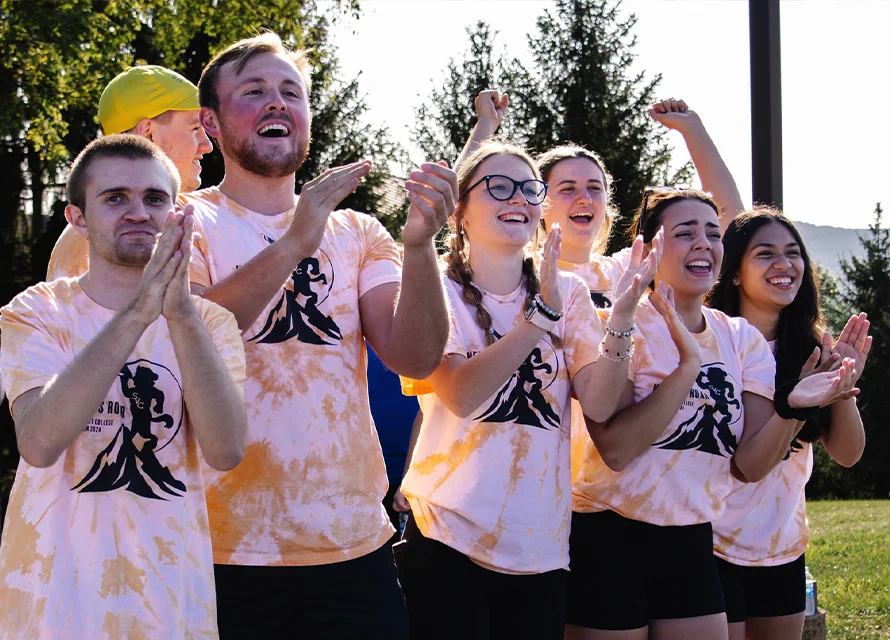
Here you will imagine the value of your education for a lifetime.
At Saint Vincent we “think in centuries.” We believe that what we do in the moment impacts future generations. So, we not only take care of our home; we also take care of our family for a lifetime.
We are committed to growth and progress in the programs we add, the buildings we renovate, and the students we reach. Our alumni are influencing our world, achieving greatness, empowering others to do the same.
Learn about student success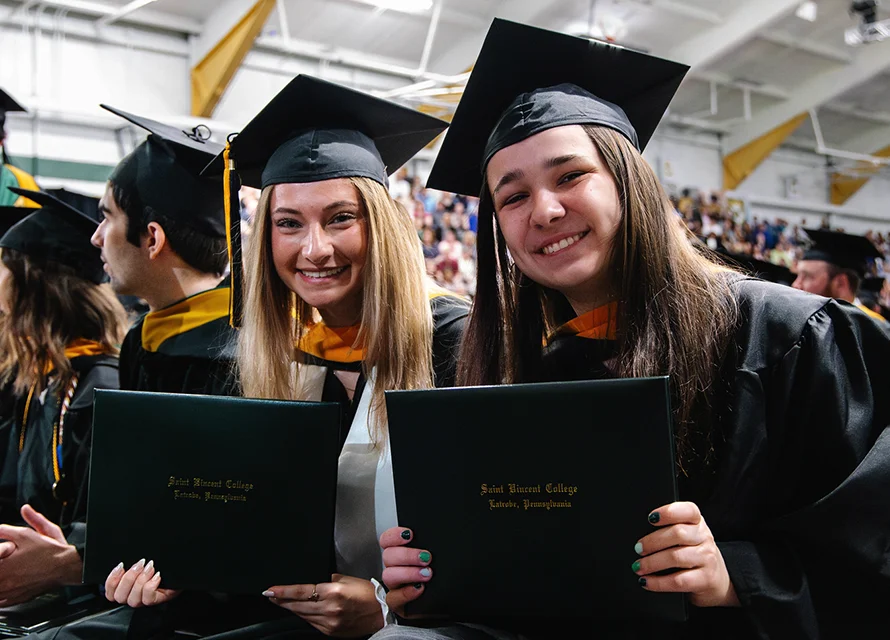

Here you’ll discover we look back to look forward.
Saint Vincent College is a Catholic liberal arts college rooted in the Benedictine tradition. And those roots matter to us.
Learn more about how we established an institute of higher learning based on community, service, and the pursuit of excellence. Discover how we translate 1500 years of tradition into a thriving modern institution, achieving over 175 years of success.
Learn more about our history
Here you’ll discover a community where you are a part of something bigger.
We believe our community is strengthened by diversity, understanding, and compassion. We embrace St. Benedict’s challenge of extending hospitality to all people.
If you're new to the Catholic Benedictine tradition, we invite you to learn more about us. Our principles of stewardship, humility, and love may resonate with you, no matter your background.
Learn more about our Benedictine tradition
Here you’ll discover the joy of learning as you pursue deeper meaning.
Our philosophy of education, rooted in the early 6th-century monastic tradition, emphasizes the pursuit of truth, goodness, and beauty to serve and uplift our broader community.
With over 60 programs of study, Saint Vincent is educating the next generation of scientists, cybersecurity experts, business professionals, artists, educators, psychologists, engineers, and more. Through our Core Curriculum, students explore diverse disciplines, link subjects, and prepare for compassionate action.
Explore the SVC Core
Here you’ll think deeply and aim higher to redefine personal and professional success.
Our expert professors make time to continue relevant research and stay active in their field while remaining intentional about building personal relationships in small classroom settings where students find support and encouragement to be the best versions of themselves.
The Honors Community at Saint Vincent College is an intellectual hub where high-achieving students engage in academic research, cultural excursions, and service-based learning.
Explore our academic program
Here you will aspire to more as you excel in your field and live with greater purpose.
At Saint Vincent College, we understand that everyone craves connection and purpose. That’s why we offer experiential learning, service opportunities, and study abroad programs to broaden your horizons and deepen your engagement with what truly matters.
We believe the knowledge and skills you develop as a student will prepare you for a successful career, but the calling you discover will bring true fulfillment as you impact those around you.
Learn more about student life
Here you will imagine the value of your education for a lifetime.
At Saint Vincent we “think in centuries.” We believe that what we do in the moment impacts future generations. So, we not only take care of our home; we also take care of our family for a lifetime.
We are committed to growth and progress in the programs we add, the buildings we renovate, and the students we reach. Our alumni are influencing our world, achieving greatness, empowering others to do the same.
Learn about student success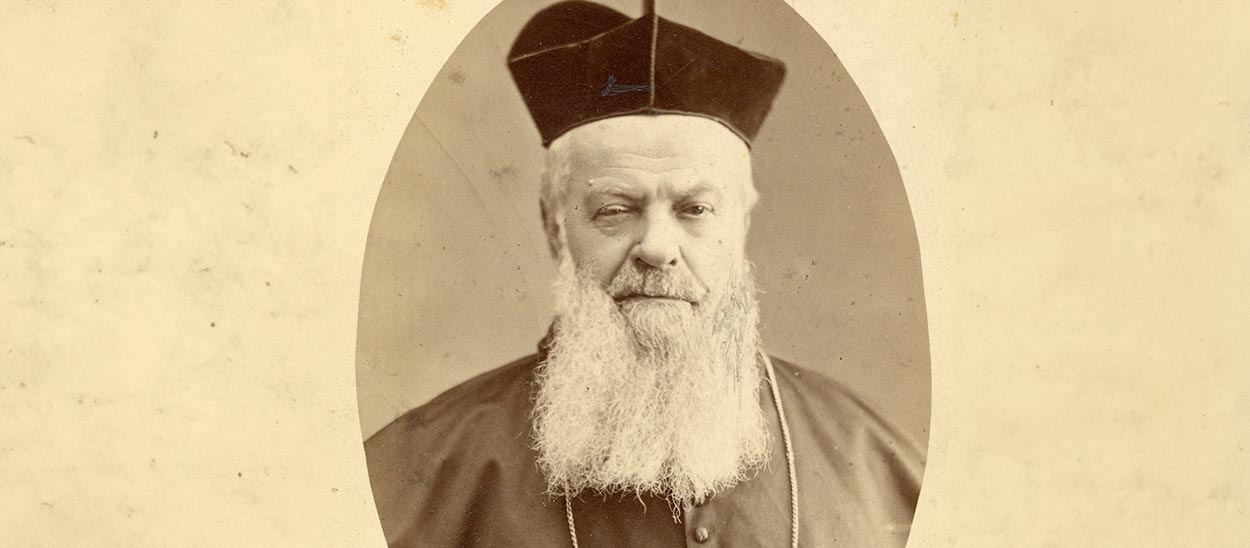
Boniface Wimmer, a Bavarian monk, and 18 others founded the first Benedictine monastery and college in the U.S. in Latrobe, Pennsylvania.
During the Civil War, Saint Vincent College faced financial difficulties and supported 23 students from southern states despite scarce funds.
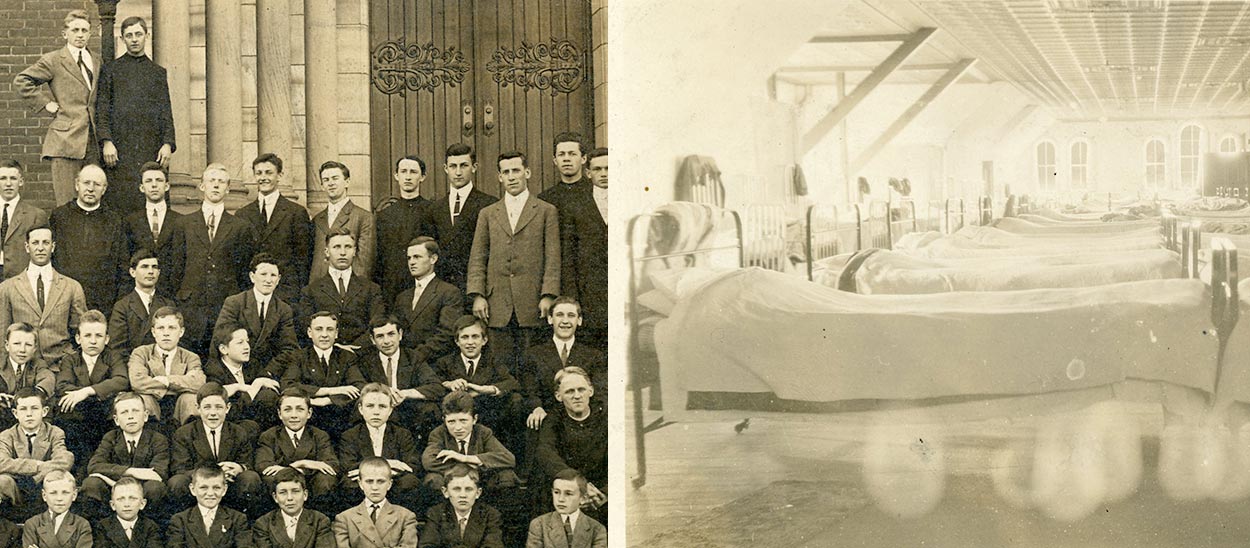
A clear distinction was made between the four-year undergraduate college and the preparatory school (high school).
The Spanish influenza epidemic overwhelmed Saint Vincent’s infirmary and prompted requiem masses in the Basilica. President Father Aurelius Stehle suspended classes.

Saint Vincent College became the first school in the world to teach aviation.
Regis Grace and Agnes Kintz become the first women to graduate from Saint Vincent College.
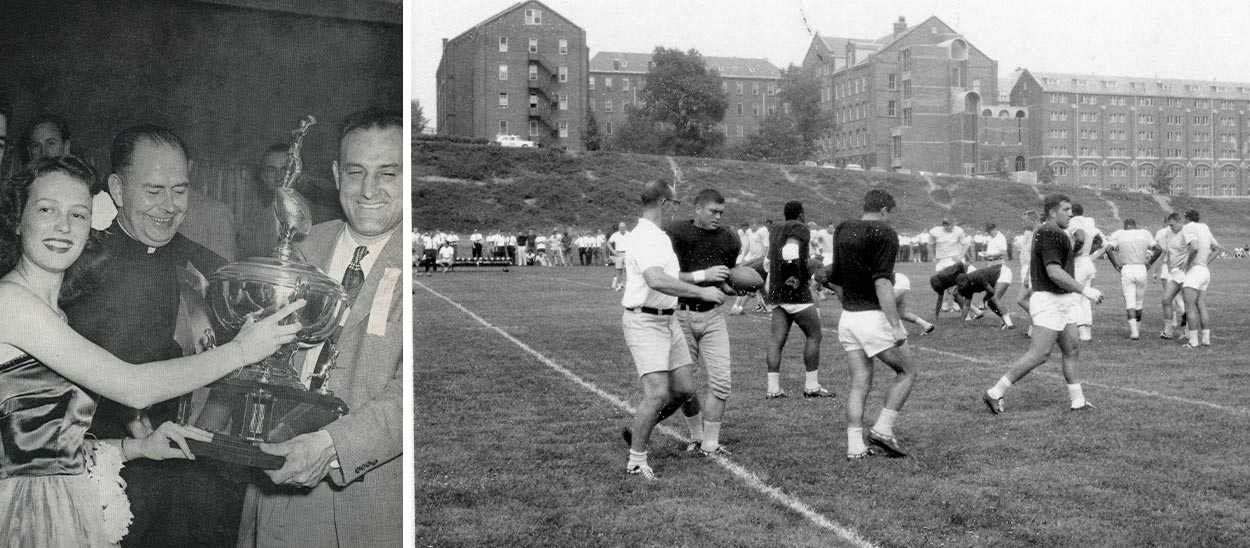
WW II saw the student population at Saint Vincent drop so low that by 1944, there were only 230 students at the school, most of them studying for the priesthood.
The football team defeats Emory & Henry in the Tangerine Bowl thus capping a perfect 1949 season.
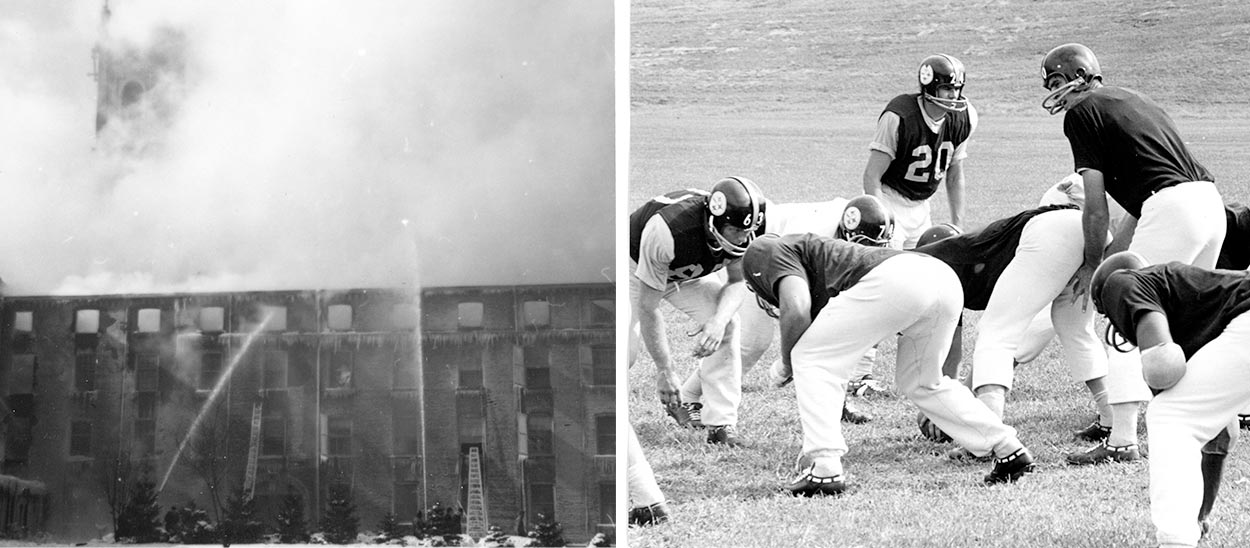
A devastating fire destroys much of the Saint Vincent campus.
The Steelers come to Saint Vincent for training camp for the first time
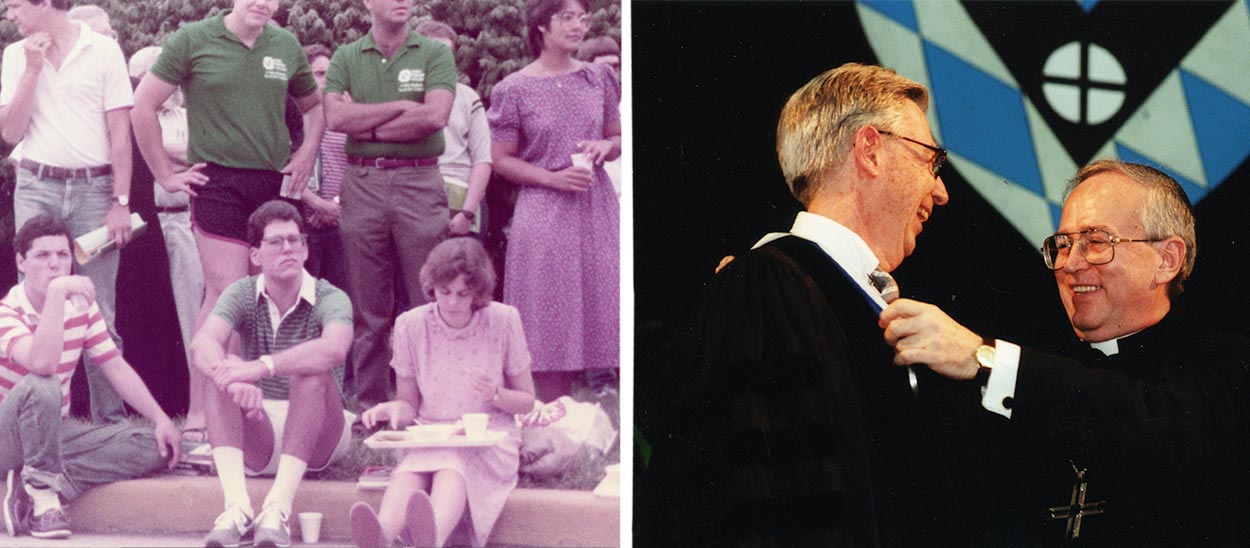
Saint Vincent College goes coed.
Fred Rogers was the main speaker and recipient of the Presidential Medal of Honor at the 154th annual commencement of Saint Vincent College on May 13, 2000
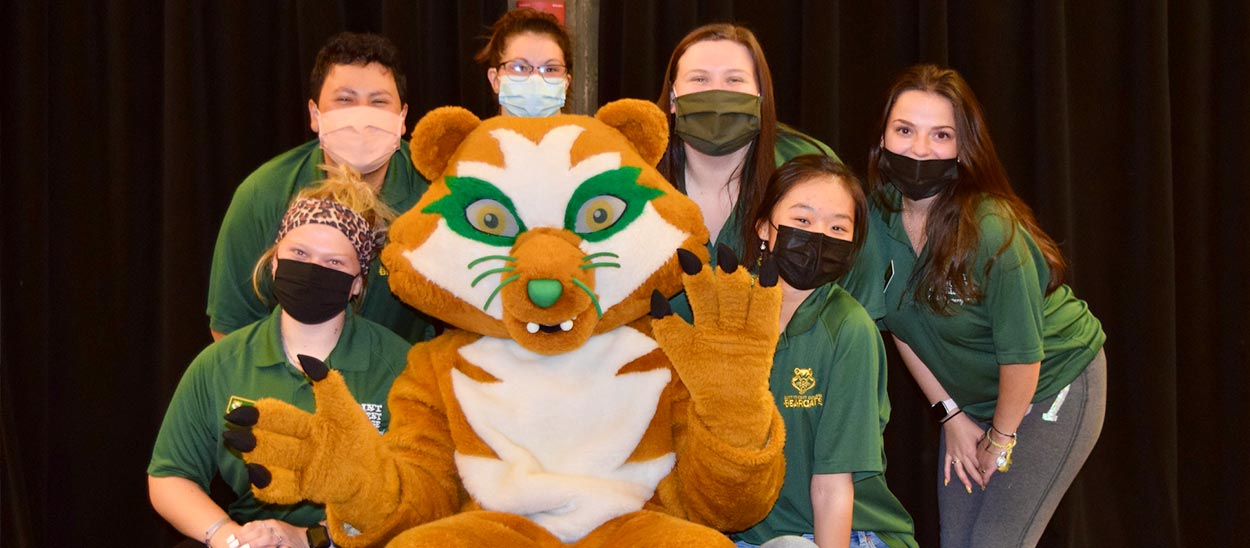
The Covid-19 pandemic sees the cancelation of several weeks of spring classes as well as the 2020 class graduation ceremonies
Saint Vincent College celebrates its 175th anniversary.
Who better to learn about Saint Vincent from than the students who have made it their home? Learn about social events, mission trips, professor relationships, and post-graduation success stories from our students on Amazon Prime’s College Tour.
Take a virtual tour and see our state-of-the-art facilities, inviting dorms, and picturesque views. Whether you’re exploring our classrooms, athletic fields, or beautiful Basilica, you’ll get a glimpse of what makes our campus truly special.
10:1
Student to Professor Ratio
Explore Academics
60+
academic programs
Degree Explorer
98%
employed or enrolled in grad school after graduation
Successful Outcomes
100%
of freshmen receive financial aid of $18,000 or more
Financial Aid
| Academics | Enrollment | Median Age |
| 50+ undergraduate majors 6+ graduate and professional programs 10:1 student-faculty ratio Freshman-to-sophomore retention: 82% Four-year graduation rate: 62% Six-year graduation rate: 69% |
1,257 Undergraduate Students 156 Graduate Students 1,440 total |
Undergraduate: 20 Graduate: 27 |
| Freshman | Test Scores | Annual Tuition 2025-26 |
| Applications: 2,611 Enrolled: 329 |
Average SAT: 1,110 Math SAT Middle 50%: 550 ERW SAT Middle 50%: 560 ACT Middle 50%: 24 HS GPA: 3.58 |
Undergraduate: $42,416 for full-time Graduate: Varies by program |
Saint Vincent College is an educational community rooted in the tradition of the Catholic faith, the heritage of Benedictine monasticism and the love of values inherent in the liberal approach to life and learning. Its mission is to provide quality undergraduate and graduate education for men and women to enable them to integrate their professional aims with the broader purposes of human life. The programs, activities, and encounters that make up student life at Saint Vincent College encourage the intellectual gifts, professional aptitudes, and personal aspirations of students to mature harmoniously.